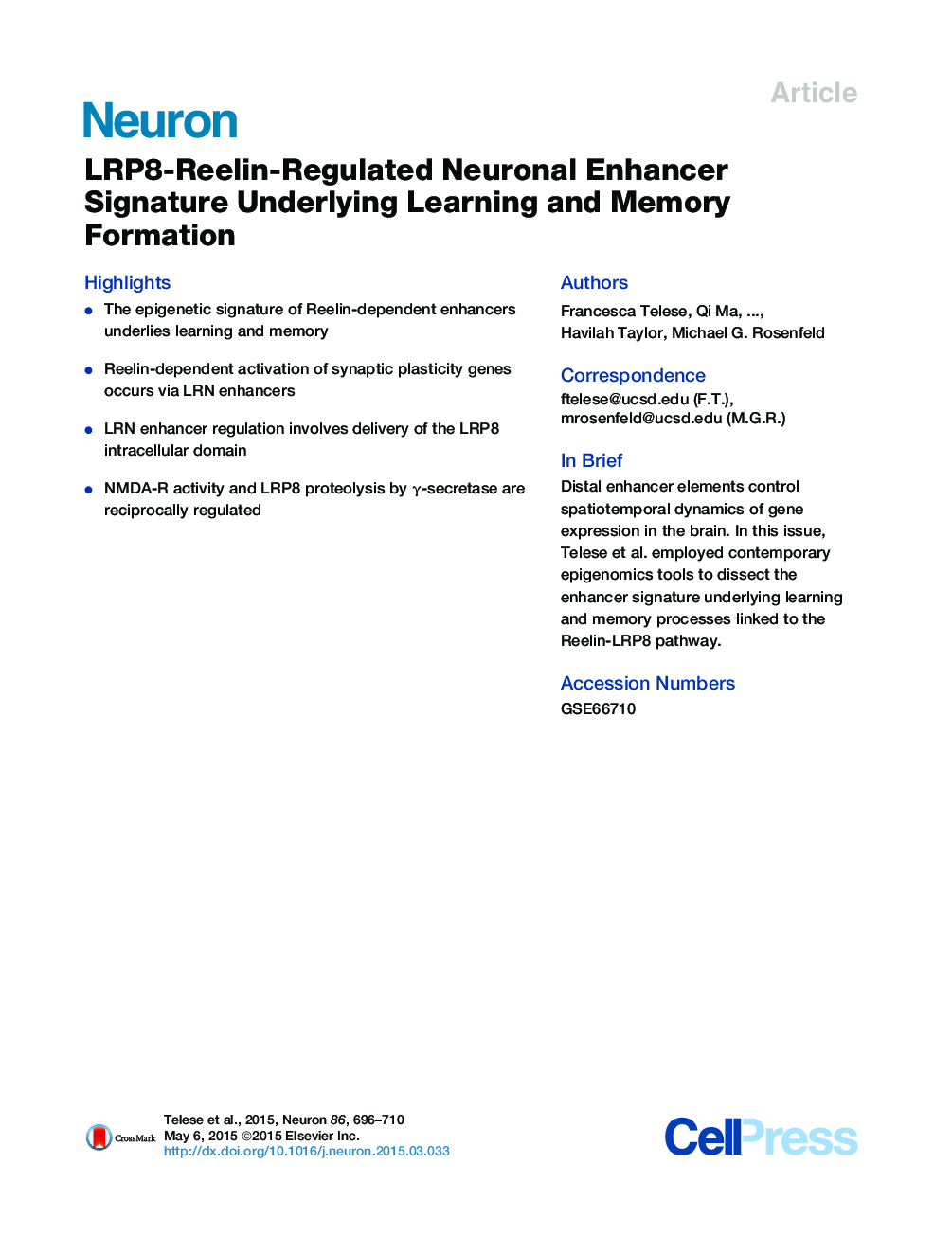| Article ID | Journal | Published Year | Pages | File Type |
|---|---|---|---|---|
| 4320932 | Neuron | 2015 | 15 Pages |
•The epigenetic signature of Reelin-dependent enhancers underlies learning and memory•Reelin-dependent activation of synaptic plasticity genes occurs via LRN enhancers•LRN enhancer regulation involves delivery of the LRP8 intracellular domain•NMDA-R activity and LRP8 proteolysis by γ-secretase are reciprocally regulated
SummaryOne of the exceptional properties of the brain is its ability to acquire new knowledge through learning and to store that information through memory. The epigenetic mechanisms linking changes in neuronal transcriptional programs to behavioral plasticity remain largely unknown. Here, we identify the epigenetic signature of the neuronal enhancers required for transcriptional regulation of synaptic plasticity genes during memory formation, linking this to Reelin signaling. The binding of Reelin to its receptor, LRP8, triggers activation of this cohort of LRP8-Reelin-regulated neuronal (LRN) enhancers that serve as the ultimate convergence point of a novel synapse-to-nucleus pathway. Reelin simultaneously regulates NMDA-receptor transmission, which reciprocally permits the required γ-secretase-dependent cleavage of LRP8, revealing an unprecedented role for its intracellular domain in the regulation of synaptically generated signals. These results uncover an in vivo enhancer code serving as a critical molecular component of cognition and relevant to psychiatric disorders linked to defects in Reelin signaling.
